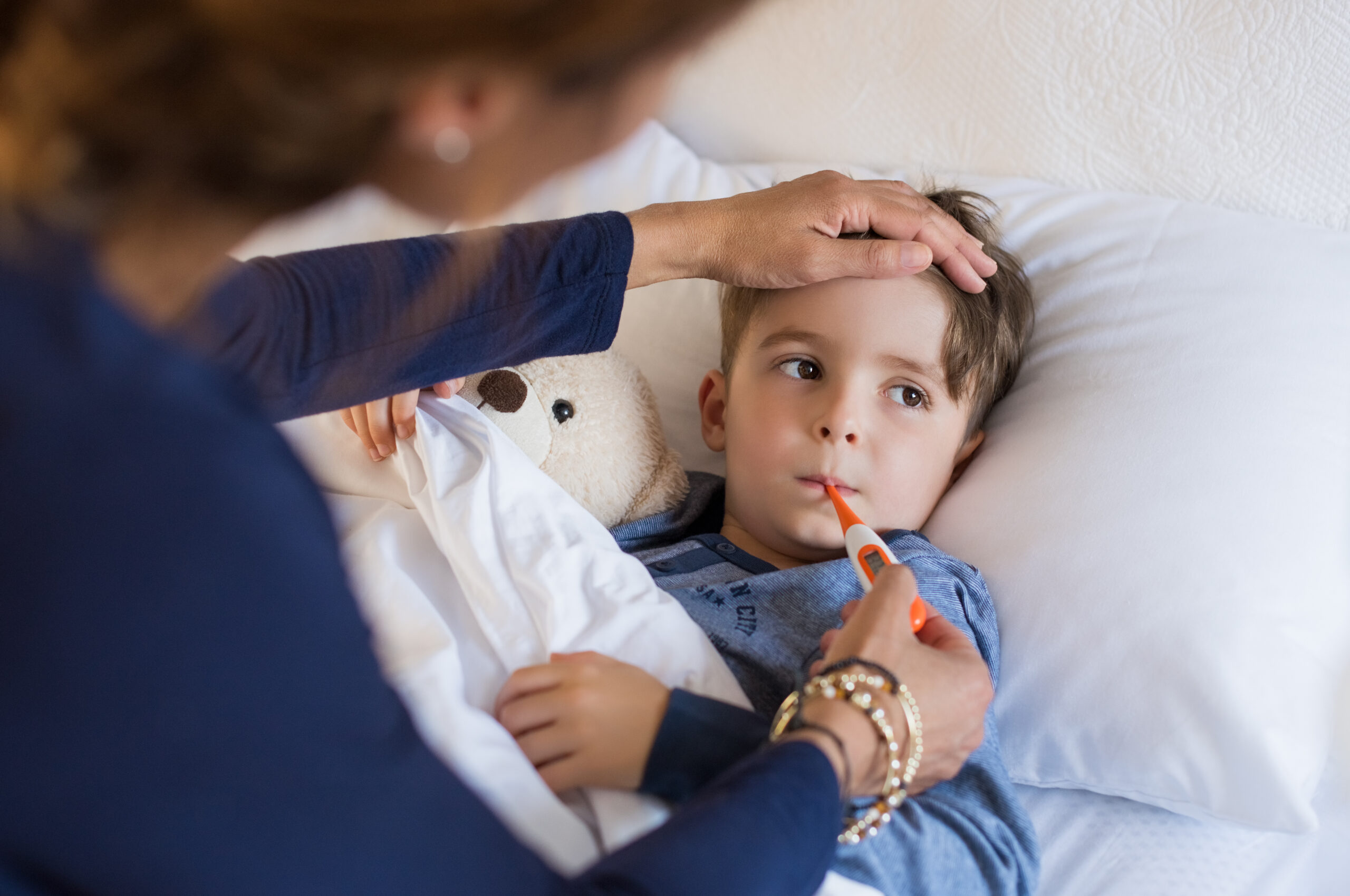What Should I Do if My Child Has the Flu?
Children's Health
•
Nov 19, 2020

With flu season rapidly approaching, many parents are asking themselves, “What should I do if my child has the flu?” And it’s only natural, as flu strains grow more varied and flu symptoms like fever, cough, sore throat, runny nose, and muscle aches grow more severe, it’s important to be prepared so that you can get your little one back to normal as quickly and as easily as possible. Whether you’re trying to get ahead of cold and flu season or your child has already started showing symptoms, the team at Complete Care is here to make sure you know what to do if your child has the flu.
If my child has the flu, will I get it?
While parents can catch the flu from their children, it’s not inevitable. Flu symptoms appear quickly, meaning your child may have only been infected a day or two prior to registering any symptoms. To avoid any further spread, try to keep your child contained to one room if they begin displaying symptoms, preferably their bedroom if they do not share it, to reduce household spread.
We’ve all gotten used to washing our hands, disinfecting surfaces, and promoting healthier spaces during COVID-19, and containing a household case of the flu starts with many of the same steps. Beyond maintaining proper hygiene and getting vaccinated, the next best step to take is to educate yourself on how to stay healthy during flu season and avoid flu outbreaks in the workplace so you don’t bring any illnesses home to your family or office.
How can I treat my child’s flu at home?
When dealing with the flu at home, keeping your child hydrated is the most important step. The flu may cause them to lose a lot of fluids via sweat or urine, so have them drink water, juice, and broth regularly. If your child seems to be severely dehydrated as a result of the flu, ER emergency fluids may be a necessary next step. Foods like broth-based soups and crackers are great if your child has an upset stomach. Nausea and vomiting can also be symptoms of the flu, but be sure you can spot the difference between the stomach flu vs. food poisoning.
Dress your child in light pajamas, give them plenty of blankets, and keep air circulating through the room. Make sure no one else in the household comes in contact with the sick child or shares any cups, silverware, or items that the child interacted with. This will help prevent the spread of germs.
What do you give a child with the flu?
Depending on your child’s age, especially if they’re younger, consulting a doctor before administering any medication is a good rule of thumb. If your child is over six months old, you can give them children’s formula Tylenol or ibuprofen to help with the fever symptoms. Avoid giving your child aspirin if they’re under 18 years old. Keep them hydrated with liquids without caffeine and make sure they get plenty of rest.
Most children will be infected with the flu virus for less than a week. If the sickness persists or new symptoms appear, it may be time to see a doctor.
When should I be concerned about my child’s flu?
Now that we’ve answered the question, “What should I do if my child has the flu?” Let’s discuss what you can expect from your child when they are sick with the virus. Moaning and groaning is to be expected due to the aches and pains the flu can create. Your child may constantly ask you to give them more blankets because they’re chilly, only to want them all taken away a little while later because they’re sweating. The key here is patience. The flu takes a large toll on your child’s body, so agitation and even whining are both perfectly normal. However, some behaviors such as extreme irritability or not wanting to drink any fluids could be a sign that medical attention is needed.
Signs the flu could be an emergency:
Parents, if you’re trying to figure out when to take a child to the hospital for the flu, here are some signs that they should be taken to the emergency room:
- Fever of 102° or higher
- Difficulty breathing
- Excessive drowsiness
- Extreme dehydration
- Blue lips
- Difficulty keeping fluids down
- Intense and persistent pain
If your child’s flu becomes concerning, Complete Care is here to help
Caring for a child with the flu can be tiring, but know that you are not alone should things take a turn for the worse. If the flu becomes too much to manage at home, don’t risk waiting at home.
Complete Care emergency rooms are here when the doctor’s office is closed. Our stand alone emergency room facilities are able to offer our patients the same level of hospital care, but without the wait time, so we can see you in minutes, not hours. All Complete Care locations are open 24/7 with UV-C technology that effectively kills 99.9% of harmful viruses and bacteria installed throughout each facility. If you or a loved one is experiencing severe symptoms of complications from the flu, do not hesitate to visit your nearest Complete Care location today for quick, efficient, patient-centered care.
